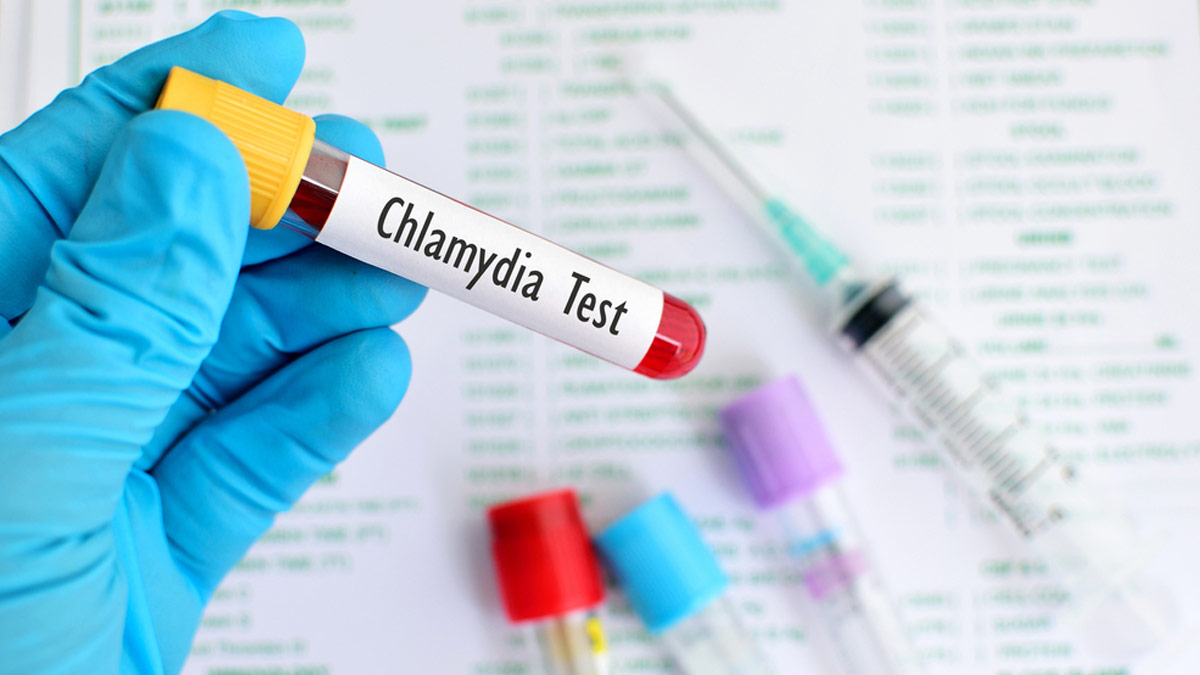
It is shocking how chlamydia is one of the most common sexually transmitted infections (STIs) worldwide, yet many people remain unaware of its presence until major complications start occurring in their bodies. As per the World Health Organisation’s data, in 2020, a total of 128.5 million new infections of chlamydia were registered worldwide among the age group of 15 to 49 years, covering 4% and 2.5% of women and men respectively.
Table of Content:-
Just like all the other STIs, chlamydia can also project different symptoms among men and women. Despite its high rate of prevalence, Dr Aniket Mule, Consultant, Internal Medicine, Wockhardt Hospitals, Mira Road, informed the team of OnlyMyHealth, that the majority of men with chlamydia don't notice any symptoms until it's too late.
Symptoms of Chlamydia In Men

“While Chlamydia is a sexually transmitted bacterial infection that can affect both men and women, there are indeed some differences in how it manifests in each gender. One of the main disparities lies in the symptoms experienced,” shared Dr Mule.
Also Read: How STD Affect Fertility? Know Importance of STD Screening And Detection To Protect Fertility
She highlighted that in comparison to women, who experience symptoms like abnormal vaginal discharge, pain during urination, or lower abdominal pain, men often exhibit fewer visible signs. In fact, many infected men show no symptoms at all. To create awareness about this deadly disease, she listed the symptoms of chlamydia in men:
- Pain while urination
- Watery discharge from the tip of the penis
- Pain and swelling in testicles
- Burning or itching in the urethra
Risk Factors for Chlamydia
Dr Mule shared several factors that can increase your risk of contracting chlamydia:
- Being sexually active, especially with multiple partners.
- Young adults and teenagers are at a higher risk due to less awareness of safe sex practices.
- Failing to use condoms consistently and correctly during sexual intercourse.
- A previous chlamydia infection doesn't grant immunity; you can be reinfected.
- Having sexual partners who engage in high-risk behaviours can also increase your risk.
It is essential to note that Dr Mule urged, “This bacteria can also impact other parts of the body beyond the reproductive system. One area frequently affected is the rectum. When chlamydia spreads through anal sex or even from touching infected fluids and then touching the anus, symptoms such as rectal pain, discharge, and bleeding may arise. Moreover, Chlamydia can also reach the throat through oral sex with an infected partner. This occurrence might lead to symptoms such as a sore throat and difficulty swallowing, mimicking common cold or flu symptoms. It is crucial to highlight that untreated extra-genital chlamydial infections can have serious consequences if left unchecked.”
Chlamydia Treatment For Men

Dr Mule shared that the silent nature of the infection makes regular STI testing crucial for chlamydia, especially if you engage in unprotected sexual activity. “You will be shocked to know that if chlamydia is left untreated, the infection can lead to swelling in the tubes that carry sperm from the testicles, and chronic pelvic pain, impacting fertility,” she added. Chlamydia can also increase the risk of acquiring or transmitting HIV.
However, the good news is that there are many viable options including urine samples or swabs of the affected area, that can diagnose chlamydia effectively. Also, fortunately, chlamydia is easily treatable with antibiotics, provided it is caught on time. Typically, a single dose or a short course of antibiotics can clear the infection. It's essential to complete the prescribed treatment, even if symptoms disappear.
Chlamydia Infection: Prevention Is Better Than Cure
Like all diseases and infections, prevention is always better than cure. Even if you get a timely diagnosis and treatment, your immune system will have suffered significantly after getting infected by chlamydia. That is it is essential to practice safe sex, get regular STI testing, have open communication with sexual partners about their STI history, and avoid a frivolous lifestyle with multiple sexual partners.
Either way, you should be aware of the symptoms and treatment options of chlamydia, even if you practice all precautions, as microscopic organisms like the bacteria that cause chlamydia can leak through the thickest walls of self-defence. In case you do contract chlamydia, positively inform your sexual partners about the same, so they can get tested as well.
Also watch this video
How we keep this article up to date:
We work with experts and keep a close eye on the latest in health and wellness. Whenever there is a new research or helpful information, we update our articles with accurate and useful advice.
Current Version
